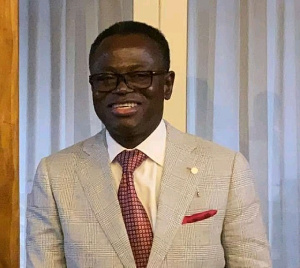SC Judge Kulendi recommends jailtime for police officers, judges, as part of training
He cautioned further that it is important to adopt a digital intervention that “makes the justice delivery process transparent”.

A judge of the Supreme Court, Justice Emmanuel Yonny Kulendi is advocating for reforms in the justice delivery system that would include placing stakeholders of the system in prison for some time, as part of their training.
According to Justice Kulendi, this would prove effective in helping these stakeholders understand the system they operate better and essentially impact the delivery of justice positively.
He made these observations as part of his remarks at a forum organized by the Ghana Case Tracking System on Thursday, August 12, 2021.
“I think if anyone is going to play [a role] in the criminal justice system, in the cause of their training, the system should have orchestrated built-in process that will cook up their running into problems with the law”
“If you’re a policeman, you are put into a cell for 48hours then after, when you’re managing [others], your disposition to the people who come here will be different. It will change,” Justice Kulendi further intimated.
He added, “the same goes for the judge or magistrate that in the case of the training, we should orchestrate a system where you get remanded and put into prison for one week. When you come back, the first thing you will appreciate is that the custodial facilities were not meant as a marketplace and so it is not meant for everyone who visits the police station or court.”
He cautioned further that it is important to adopt a digital intervention that “makes the justice delivery process transparent”.
“It is the people who have an interface with the criminal process [who should be blamed]. For instance, a person can be charged and granted bail … but the court will say go and bring two civil servants who earn more than GHS15,000 and all kinds of things. Instead of the judge to say go home on self-recognizance bail, the judge will impose conditions that you can never meet, and that is not a problem with the law, it is a human problem.
“I mean, you walk to the police station yourself and when you get there, you become a prisoner. Because we are just mean-spirited, [we] like power and lack [neighborliness] because if you won’t want that to be done to you or your sister or brother, you won’t do that to anybody,” the Supreme Court Judge concluded.


